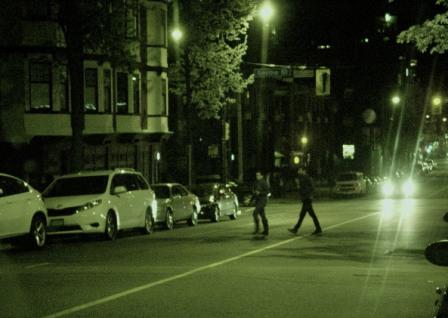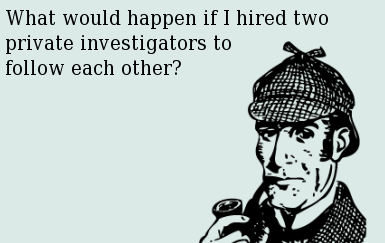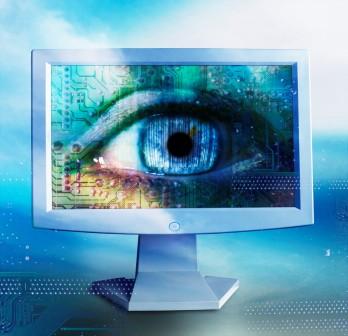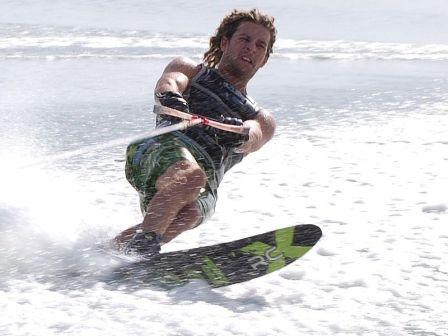Please Visit Us At www.vancouver-security.com
Call Us At 604-574-0181
Private Investigators In Vancouver

October 20, 2013 By David Chemago
Connect With David on Google+
The Types Of Investigations That Are Carried Out By Private Investigators in Today's World
As a Private Investigator working for an Investigation Firm in Vancouver Canada, I never know what type of cases will come in the door.
Locating people, missing persons, fraud cases, civil investigations, cheating partner investigations, criminal investigations, corporate investigations, stalking, cyber crime, harassment, cyber bullying, intellectual property theft, employee theft, asset searches, background searches, child support, child custody investigations, insurance fraud, vandalism, teen activity checks, corporate espionage, industrial espionage, surveillance, counter-surveillance, even collecting evidence on clients drug dealing or crazy neighbours. We see it all, and our work can be exciting.
In Canada, we are called Private Investigators or PI's, in the US and other countries a Private Investigator could also be called a Private Detective.

So, How Much Do Private Investigators Charge?
One of the first questions always asked, is how much will a case cost and what is the hourly charge?
This is a very fair question and is often not advertised. You will almost never see rates posted on Investigation Firms websites just as you will almost never see them on a Lawyers.
I have never understood why there is such secrecy in the industry, but the answer is.....it depends.
Most investigators in North America charge from $60 to $150 per hour, plus required expenses, reimbursements and mileage charges.
Most Investigation Firms require an upfront retainer from a minimum of $500 to sometimes $10,000 or more for a complex or international case.
Why is there such a range in price? It depends on what type of expertise is required.
Some types of Investigations have to be sub-contracted out, such as TSCM (Technical Security Counter Measures/Debugging), or computer and cell phone forensics that can require extremely expensive equipment and training.
Is the Investigator a one person operation working from their home? Or are they a firm with lavish offices downtown?
As with most cases with service industries such as accountants and lawyers, you get what you pay for.

The Types Of Investigations And Surveillance And The Skills Required
In order to find the right Investigator for your needs, you first need to understand what type of case you have. Not all Investigators are good at all types of Investigations.
Surveillance-surveillance is the most common Investigative tool for PI's, and there are many types and many different skills required. When an Investigator is on a surveillance their objective is to witness and capture events as evidence. The evidence can be in the form of video, photographs, audio, physical evidence, or electronic evidence such as recording data from a cyber surveillance.
There is more to carrying out a surveillance than just siting in your car and taking pictures. A PI on any type of surveillance needs to be constantly alert and be able to adapt to their targets actions and activities. I have listed the main types below.
Stationary Surveillance-stationary surveillance is a common type of Private Investigation
work. This involves setting up in an area and paying strict attention to the
target or subject. In a city setting you might be in a coffee shop, a vehicle,
a park bench, bus stop, or any other area that gives a good view of the target.
Typically, if the subject moves, you do not follow and maintain your cover. Stationary surveillance can sometimes involve many operatives spread out on a planned route to observe and report movements of the target without having to follow the target. These types of tactics are often used if the case involves tracking a "hot" target, someone who is looking out for being followed.
Stationary Electronic Technical Surveillance- using the latest spy and surveillance camera technologies, a Private Investigator can plant a camera or video recorder in just about anything. Sometimes parked cars are used that are left near the target location recording the comings and goings of the subjects. Camouflaged cameras can even be put into trees or bushes to take pictures or video in day or night.
Mobile Surveillance-mobile surveillance is one of the most difficult jobs of a Private Investigator. Often working in teams, the Investigators will follow a subject and record the targets movements, who they are with, and where they go. Mobile surveillance can be in a vehicle, on foot, on a bike, roller blades, boat, or any other thing that moves. Following someone is extremely difficult and often requires a minimum of 2 or 3 operatives to get results.

Counter-Surveillance- yes, it is possible, has no doubt happened, and would be quite funny to have two Private Investigators following each other. Some cases do involve counter-surveillance where the client feels they are under surveillance for reasons unknown. The investigator then needs to determine if the client is being followed. This can be determined in several ways by an investigator who is experienced in counter-surveillance tactics. In order to preserve these tactics, I will not go into them here.
Counter-surveillance can be quite serious though, and is often used to gather evidence in stalker and in harassment cases. Counter-surveillance is also used to prevent corporate espionage, industrial espionage, and in other areas such as personal protection.

Cyber
Intelligence As A Tool For Surveillance & Investigations- cyber intelligence and cyber investigations
involve using the internet as a tool for tracking people, finding people, locating counterfeit products, locating stolen merchandise, gathering information and intelligence through the use of social media,
online auctions, special search engines, the and the deep web.
Cyber Intelligence Investigators require special training and must constantly keep up with the latest technologies, updates, and techniques. Cyber Intelligence Investigators can take years to develop their skills and their covert social media accounts and contacts.
In order to be an effective investigator in today's world, Investigators must have knowledge and experience in this area.
Undercover
Operations Or Covert Operations- this "hiding in plain sight"
surveillance is a special type of investigation that
is usually carried out for businesses or corporations, but can be an
extremely useful tool for almost all types of cases. This type of work
requires a certain type of individual who is a quick thinker and can
process a
lot of information at once. Not only does the undercover investigator
need to
keep their cover story straight, the are often infiltrating groups,
remembering
names, times and dates, and also either operating a miniature camera or
audio
bug for capturing evidence all at the same time. This can be a very
exciting and exhilarating type of work, but can also be quite dangerous.
GPS As A Surveillance Tool
GPS Surveillance-there are varying laws and rules for Investigators to use GPS trackers on vehicles in North America and Worldwide. In some areas GPS trackers are totally legal to use by Private Investigators, others they are not, and in most areas their use depends on how they are being used, and for what purpose.
They are an extremely effective means of surveillance when used correctly and can significantly reduce the costs and improve intelligence gathering associated with a surveillance.
Covert CCTV/Spy Camera Surveillance-a covert surveillance camera system can give the client and Private Investigator the evidence needed to convict a criminal from a break and enter, get evidence of illegal behavior, or keep someone away from you if you are being harassed or stalked. There has been a significant increase in spy camera surveillance in protecting business assets from corporate espionage. Many business owners, Presidents, HR Managers, and CEO's are utilizing the technology to keep watch on their offices during vacations and business trips.
Background Checks-background checks on an individual or business look into the criminal, civil, professional, and/or personal history of a person or business. There is no database or online data that can give you a clear picture of who you are dealing with. An experienced Private Investigator uses many tools to gather and verify the information you require. When required, individual background checks can be quite in depth involving investigational interviews with the subject’s friends, ex-friends, former or current coworkers, neighbours, old roommates, landlords, etc. Businesses can be checked for civil lawsuits, interviews with other companies or vendors they deal with, former and current employees etc.
Child
Support And Custody Investigations-these types of investigations usually
require covert video surveillance tactics to determine if the child is
suffering any abuse or neglect, and can report on drug and alcohol abuse,
reckless driving, criminal activity, and violence. Sometimes interviews with neighbours, teachers, and
other individuals are required to verify information.

Insurance Fraud, Workers Compensation Investigations, Working Under The Table, And Civil Investigations-insurance fraud is more common then you might think, and can be difficult to prove.
The most common type of case is that of the target claiming a false injury or illness. You would be amazed at what extreme activities some individuals who are claiming severe injuries are capable of. Loading up moving trucks, working on cars, building a new deck, contact sports, even water skiing!
"Working under the table" is another common type of fraud. Individuals who are claiming false injuries, off on stress leave, or are receiving unemployment benefits can be often found working for cash, or banking their wages to receive them at a later date.

Common Misconceptions
There are many common misconceptions that the general public has of Private Investigators and Private Detectives. The most common from my experience are:
PI's Have Easy Access To Information
This is a common misconception. Pi's do have access to some public records depending on the country they are working from, but there are no magic databases that can find information on anyone and everyone.
Most countries do not allow PI's access to Police Databases or Government Records. An experienced PI does however, have the ability of gathering most required information by legal means through special techniques and trade-craft.
The One Operative Surveillance Scenario
You only need one operative to follow someone. In order to reduce costs, clients will often request that a surveillance is carried out with one investigator. In some cases this is possible, but in most it will end up costing the client more money. How? Here is an example.
An investigator is conducting surveillance on a targets home in their vehicle. Finally, after 6 hours, the target comes out, gets in their car, and leaves. The investigator follows and gets stuck behind a truck at a red light at the first intersection, and loses the target. The investigator tries to find the target when the light is green but cannot locate her. Surveillance is over, and has failed. The Investigator now has to tell the client that the target has been lost in traffic after a 6 hour surveillance and that he will have to try again tomorrow. The client is not happy as they have just spent $600 with no results.
The investigator sets up again the next day. After 4 hours, the target comes out, gets in her vehicle, and leaves. Because the target was lost yesterday, and the client is not happy, the investigator follows the target too closely. After following the target for 5 minutes, the target takes a last minute turn into a gas station and stops. The target thinks she has noticed the same car following her since she left home and wants to be sure. The operative can either swerve into the gas station and get burned, or continue driving down the road. Either way, the target will now be watching for someone following her, the client has spent $1000, and the surveillance is a bust. At this point, the surveillance will now require a minimum of 3 or 4 operative vehicles to carry out, and due to the target being tipped off, she may take a crazy route and lose them all. Costs of the operation will skyrocket.
Had the investigators used a 2 vehicle team, one in front and one behind, they most likely would have had success in the first day. Case closed, and a happy client.
I encourage anyone who thinks surveillance is easy to give it a try. See if you can successfully follow someone for about 10 minutes from the grocery store without losing them, and without them noticing.
Private investigators Carry Guns
With the exception of certain areas within the US, Private Investigators are prohibited from carrying any weapons at all. There are certainly some cases where being able to carry a weapon for protection would be welcomed, but in most places in the world, it is a criminal offense.
PI's Can Find Any Person, Always Get The Information, And Catch The Bad Guy
There can never be any guarantees that a case will be successful. Not everyone can be found, some people simply have no information out there, and sometimes the targets are not stealing from their company or cheating on their spouse.
At the end of the day, if you do decide to hire a Private Investigator, ask them what their expertise and experience is, what their hourly rates are, and how long they have been in business. Make sure they share their plan for your case with you, and have specific instructions that they cannot spend over your authorized amount or retainer without your permission.
Regardless of where you are in the world, if you need help finding a good investigator, need an investigation, or advice, feel free to email me at david@six-tech.com with your questions and I would be happy to answer them for you.
